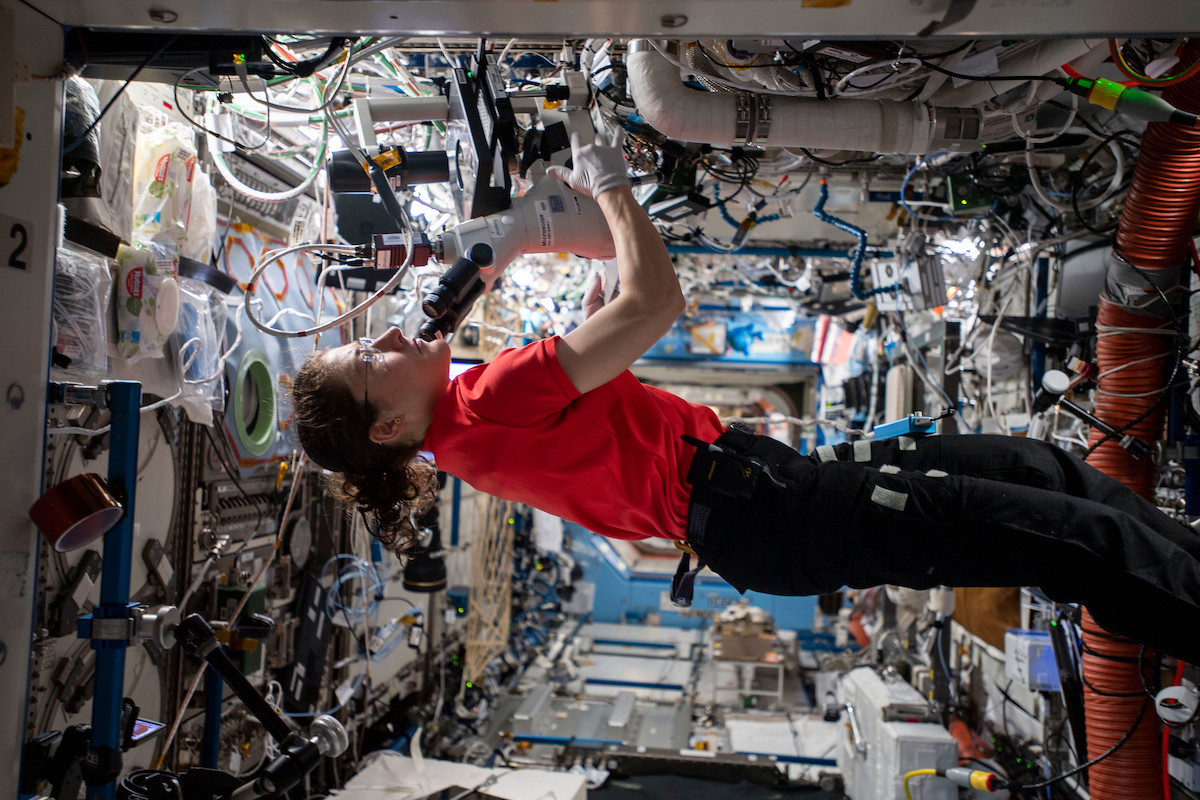Channels
Special Offers & Promotions
Space-Based 3D Cell Culture Research Paves the Way for New Cancer Therapies

ISS National Lab Helps Fuel the Development of Groundbreaking Treatment for All Types of Cancer and Beyond
Biotechnology startup MicroQuin leveraged the International Space Station (ISS) National Laboratory to grow 3D breast and prostate cancer cell cultures to learn more about how these cancers develop and grow. However, the research team found something incredible that could lead to a way to treat not just breast and prostate cancers but all cancers.
Through MicroQuin’s ISS National Lab-sponsored research, the team identified microgravity-induced changes in cancer cell signaling that revealed something critical to cancer cell survival. Cancer cells’ survival depends on their ability to regulate changes in their intracellular environment (the environment within the cells). As part of MicroQuin’s research, the team crystallized a protein called TMBIM6 that plays a key role in regulatingcells’ intracellular environment and determined its structure.
Based on this new knowledge, MicroQuin developed a small molecule therapeutic that binds to TMBIM6 and alters how cancer cells regulate intracellular environment changes, causing the cells to die. TMBIM6 is only activated in cancer cells, so the therapeutic does not harm healthy cells. When MicroQuin researchers tested the therapeutic in the lab, they found it worked for all types of cancer.
Even more incredible, MicroQuin discovered that the findings about intracellular environment regulation could apply to many other conditions like neurodegenerative diseases, traumatic brain injury, and even viral infection.
In a newly released article in Upward, official magazine of the ISS National Lab, MicroQuin founder and CEO Scott Robinson says, “What we’re seeing is that at the heart of every disease or injury, you have an intracellular environment change, and if you can alter how a disease changes the cell’s intracellular environment, you can either fully stop the disease or slow its progression.”
The idea that research on the space station, orbiting 250 miles above our planet, could impact your life may seem hard to imagine. But for Amelia Smith, ISS National Lab science communications manager, the value of MicroQuin’s space-based research hit close to home. In an Upward “View From the Cupola” feature, Smith shares her perspective on the company’s groundbreaking ISS cancer research and her own breast cancer diagnosis.
“Discoveries in space aren’t just achievements on a space station,” she says in the perspective piece, “they are breakthroughs that could lead to a world where families like mine are filled with hope instead of fear in the face of cancer and other devastating diseases.”
MicroQuin’s research was supported by the Technology in Space Prize, funded by the Center for the Advancement of Science in Space™ (CASIS®), which manages the ISS National Lab, and Boeing in partnership with the MassChallenge startup accelerator program.
To learn how MicroQuin’s ISS research led to a “massive paradigm shift” in how scientists think about cancer treatment, read the Upward feature “Orbital Oncology: 3D Cell Cultures in Space Reveal the Secret to Killing Cancer Cells on Earth.”
About the International Space Station (ISS) National Laboratory
The International Space Station (ISS) is a one-of-a-kind laboratory that enables research and technology development not possible on Earth. As a public service enterprise, the ISS National Laboratory® allows researchers to leverage this multiuser facility to improve quality of life on Earth, mature space-based business models, advance science literacy in the future workforce, and expand a sustainable and scalable market in low Earth orbit. Through this orbiting national laboratory, research resources on the ISS are available to support non-NASA science, technology, and education initiatives from U.S. government agencies, academic institutions, and the private sector. The Center for the Advancement of Science in Space™ (CASIS™) manages the ISS National Lab, under Cooperative Agreement with NASA, facilitating access to its permanent microgravity research environment, a powerful vantage point in low Earth orbit, and the extreme and varied conditions of space.
Media Partners


